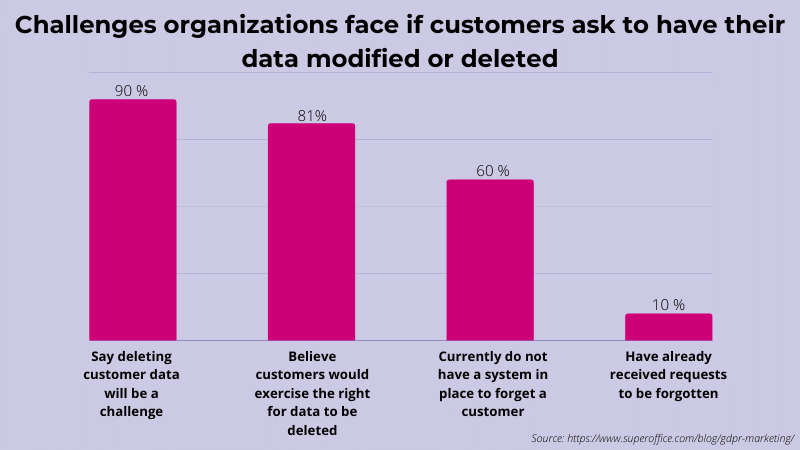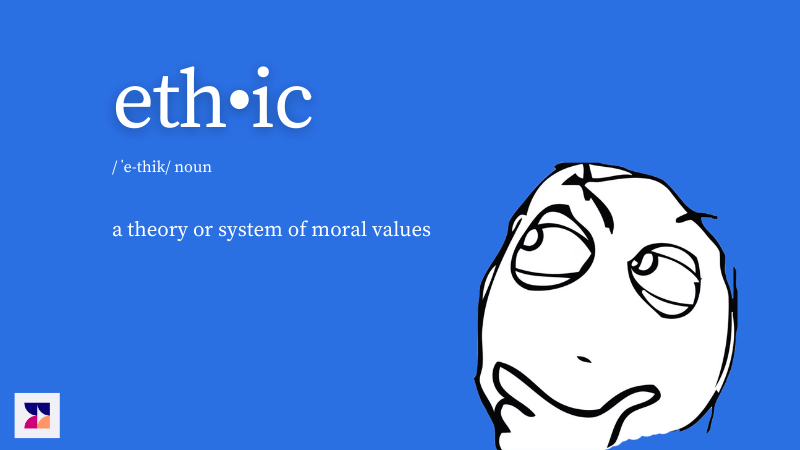We are living in a globalised, interconnected world where we have the luxury of choosing from an endless list of products and services from across the globe.
In this highly competitive marketing space, a product or service that is not well marketed will have a difficult time gaining traction. Marketing professionals endeavor to influence consumers’ habits and choices towards the product and/or services they are marketing. Companies invest significantly in terms of time, tools, and resources, on their marketing efforts. This includes mining, and analysing vast amounts of data collected at every consumer interaction point.
The introduction of contemporary privacy regulations such as GDPR or PIPEDA, aimed at taming the so-called ‘digital wild west’ and force organisations to handle their customers’ data ethically, and responsibly.
This has birthed the term “ethical marketing”.
Ethical marketing is based on social ethics and values rather than solely on legally sound advertising techniques and maximum profit. Ethical Marketers exude integrity, sincerity, responsibility, and trust in their company’s marketing practices. Ethical Marketing is about devising a marketing approach that is socially responsible, and respectful of user privacy, while at the same time compliant with the law.
What impact did GDPR have on marketing professionals?
GDPR set a high standard in how businesses can “collect, store, use and share data.” As soon as it was implemented in 2018, the GDPR law took a massive toll on unethical marketing networks. Their business model broke down when GDPR rules resulted in making certain marketing tactics illegal. This included the purchase of consumer data and cold emailing.
Companies that had put their own interests above consumers’ privacy and used shady or outbound tactics were on the receiving end of heavy fines.
“Some ad tech companies had to shut their business in the EU as their business was solely focused on using consumer data without their informed consent; and were thus unable to comply with the law.1
The possible consequences of violating GDPR are significant. Companies may face fines of up to €20 million, or 4% of their global annual revenue 2, depending on the type of infraction (whichever is greater). Meta, the parent company of Facebook, is the most popular example.
The company has agreed to pay $90 million to resolve one of the country’s longest-running data privacy complaints 3. This is how important data privacy has become.
How do Ethical Marketers navigate this complex regulatory landscape?
It is very important for Ethical Marketers to have a thorough understanding of all applicable laws and regulations. However, the complexities of these regulations make this quite challenging. Around 41% of marketers accepted that they do not fully understand the law and best practices when it comes to using consumers’ personal data. 4

Ethical Marketers must address concerns in three areas:
Data Permissions: Unlike in the pre-GDPR era, marketers cannot automatically assume that customers are open to receiving promotional content. They need to seek explicit consent, which should be specific, informed, and unambiguous. Here is an example of compliance and non-compliance for data permission. No longer can any company have a pre-ticked box in the form. The user needs to verify and agree to receive further updates.
Data Focus: As the name suggests, a marketer should only collect the data that they need and nothing more. Unnecessary collection of data may cause user privacy policy breaches. So, post-GDPR marketers do not have the same leverage they previously enjoyed, in terms of data collection.
Data Access: One of the most important aspects of the law is the “right to be forgotten.” This gives the right to the customer to get their outdated or inaccurate personal data removed. Consequently, companies are forced to delete data that falls under this category. Therefore, it is an added responsibility for Ethical Marketers to ensure that their customers’ data is not only accessible, but they also have the option to get it deleted or modified when requested.
So you want to become an “Ethical Marketer” where do you start?
As previously discussed, regulations like GDPR are not a threat to Ethical Marketers, but rather an opportunity to provide value while respecting data ethics. Ethical Marketers must devise marketing strategies that strike a balance between their marketing objectives, legal compliance, and social responsibility. Here are some tips to get you started:
Review the amount and type of data being collected
Check and understand the data being collected. Being an Ethical Marketer; ask yourself why do you need a particular data point? Can you do without that data? Are there any other data points that are unnecessary and can be deleted? Revise your collection practices as per your actual requirements and ask your customers to provide only the important data points that you need and will use.
Concentrate on the channels that you own and have control over
Marketers are usually very dependent on sponsored advertising. The quick outcomes in terms of clicks or traffic make this form of advertising alluring. If you put money into Google Adwords or your preferred social media platform, their algorithms will do the work for you. However, shifting your focus to your own channels, such as your website, email list, social media accounts, and blog, pushes you to create valuable and useful content. As a result, focusing on your channels will teach you that there’s more to life than sponsored advertisements. Your organic results will eventually improve the more you build out your content and distribution channels.
Collaborate with influencers and consider affiliate marketing
While Google and Facebook/Instagram have become the go-to options for marketers, you can also consider collaborating with communities and individuals that have a considerable following. Building and collaborating with the right influencer can enhance your brand’s credibility. It is just like a celebrity endorsement. However, it has a downside as well. You must ensure that your brand and the influencer or affiliate you have selected share the same set of values. Moreover, transparency is key. This means your audience should be well-aware of your collaboration. This technique can also be seen as an alternative to user profiling or working with behavioral data.
Use Push Notifications when possible
These notifications come as pop-ups on the desktop and mobile apps. Unlike email, push notifications do not require any personal data. So you can take advantage of that when communicating with your customers.
Show Empathy in your Communication
Being an Ethical Marketer means you give utmost importance to user privacy as well as the letter and spirit of the law. This can and should also be reflected in the way you communicate with your users. For instance, while asking for opt-in permission, avoid legal or template language. You should communicate in a way that shows empathy and allows for easy to understand language.
Encourage word-of-mouth advertising and user reviews
User-generated content and reviews are abundant online. This makes it a great way to figure out what people like and trust about your product or service. At the same time, user reviews will provide insight into what they don’t like and where improvement is needed.
It is said that the finest kind of promotion is existing customers spreading the word about your product or service. It allows people to read a reputable evaluation of your company from a more trustworthy source. To encourage this type of advertising, provide the tools and incentives for your customers to write honest, unvarnished reviews about your product and/or service.
Avoid using third parties whenever possible.
Third-party apps or links which take users to third-party sites are seen as suspect by savvy users. Remove any extraneous third parties from the equation. Every third party you add, poses a data security risk. If it is required to put third-party links, make sure to disclose why and how it is required and describe any associated risks to the user.
Use only reputable, privacy focused and GDPR compliant analytics providers such as Wide Angle Analytics.
There are many options for data analytics providers on the market, but not all are GDPR compliant or operate from an ethical basis. Even if a certain provider claims compliance, it behooves you to look beyond simple compliance. Seek a provider that embodies both the letter and the spirit of law in their operating culture.
In Conclusion
Many companies feel that laws like GDPR have restricted their freedom of communication with their customers. However, the truth is that it has resulted in more adequate and effective ways of marketing communications for Ethical Marketers.
Ethical marketing may have become more challenging post-GDPR, but it is certainly the most convenient and smooth option when it comes to ensuring compliance. This is because ethical marketing removes most areas of infringement and non-compliance.
The three major challenges faced by Ethical Marketers are related to data focus, data access, and data permission. These are quite simple to handle; don’t contact your users without their permission, do not spam them with the information they did not request, ask for their consent and give them the right to withdraw their consent.
Simple, right? A privacy focused analytics provider such as Wide Angle Analytics can be a good start towards your journey to “Ethical Marketer”.
Ethical Marketing, if done correctly, can enhance your brand’s reputation and credibility. Your customers and stakeholders will perceive your business as a good corporate citizen.
There is no magical tool that will solve all your hurdles. But some will make your life easier. With Wide Angle Analytics you are in control.
No Cookie Banners. Resilient against AdBlockers.
Try Wide Angle Analytics!



